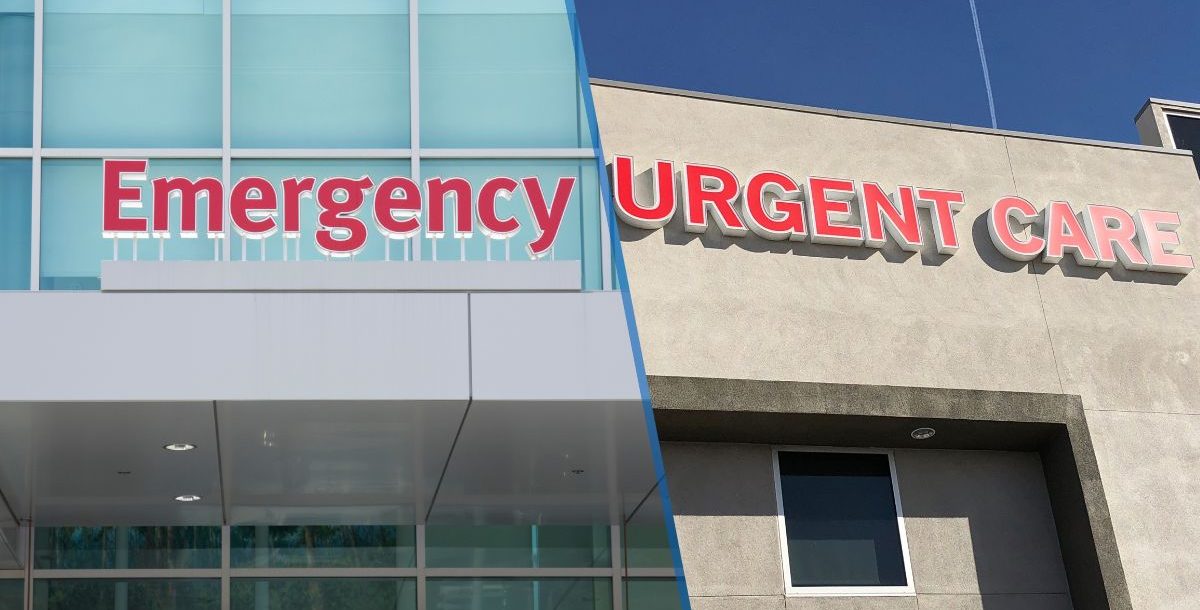When a health issue arises for you or a family member, it’s essential to know whether you should visit an urgent care or emergency room.
An urgent care can sometimes be better than the hospital emergency department for treatment. But other times, you’ll need to head straight to the ER or call 911.
Understanding the care you need and for which medical conditions can save you time, money and frustration regarding your and your loved ones’ health.
First, don’t forget that your primary care provider can be an option.
Your primary care physician should be your first call if you have a non-emergency situation that needs attention fairly quickly. For example, if you’ve had a cough for a couple of weeks, schedule an appointment or start an e-visit with them.
You might want to see a doctor for a non-emergency illness or injury. This is especially true if your primary care doctor is closed, it’s the weekend or your provider is out of the office.
If that’s the case, you may want to seek out an urgent care clinic.
This is because an urgent care clinic is a facility that is usually part of a hospital system but operates like its own separate office. Thus, urgent care is ideal if you have a non-life-threatening medical condition that needs fast, more immediate treatment. This is because they are typically open seven days a week.
Plus, these clinics (or walk-in clinics) can help you avoid the long wait times that emergency departments are known for.
You can walk into an urgent care clinic to have the following (and more) treated:
- Animal bites
- Asthma attacks
- Dehydration
- Ear infections
- Flu symptoms
- Joint and back pain
- Migraine headaches
- Muscle sprains and strains
- Nausea and vomiting
- Ongoing diarrhea
- Pink eye
- Small cuts that may require stitches
- Sprains or strains
- Strep or sore throat
- Urinary tract infections
Going to an urgent care clinic also helps to keep the emergency department less crowded. This allows medical providers to serve people with more serious health issues.
Hospital emergency departments handle severe and life-threatening conditions and situations that need immediate treatment.
Therefore, minor illnesses and injuries don’t warrant a visit to the ER. However, there are a few instances in which you still might question where you should go for treatment.
Where do I go for a broken bone?
That depends on the broken bone. A broken bone in your hand, wrist, ankle or foot is usually treatable at an urgent care clinic. Major broken bones – both in your body or on your face – should be seen at the ED. This is especially true if the bone is exposed.
As far as broken facial bones go, you may need access to a specialist in emergency care who can quickly treat the problem. An urgent care clinic usually doesn’t have immediate access to specialists.
Where do I go for burns?
Burns can be tricky because you may not know how deep they go. Here’s a guide to grading burn severity:
- First-degree burn: Most sunburns are first-degree burns. You can usually care for these at home.
- Second-degree burn: A second-degree burn affects the dermal layer of your skin. An example of an injury that causes a second-degree burn is contact with boiling water. You can treat it at home or an urgent care center.
- Third- and fourth-degree burns: Serious burns, such as electrical burns, go much deeper into layers of skin and tissue. They are very painful and need advanced treatment in the emergency department.
Other symptoms that you should go to the emergency room for include:
- Chest pain
- Heart palpitations
- Severe shortness of breath
- Severe bleeding
- Any head or eye injuries
- Seizures
- Slurred speech
- Severe dizziness
- Weakness or numbness on one side
How we can help
Whether you need urgent care or emergency room services, understanding the right place to go will help you get the care you need more quickly. Know where to find the nearest urgent care or emergency department before you need it.
Learn about the emergency and urgent care services we provide at Mercy Health.






